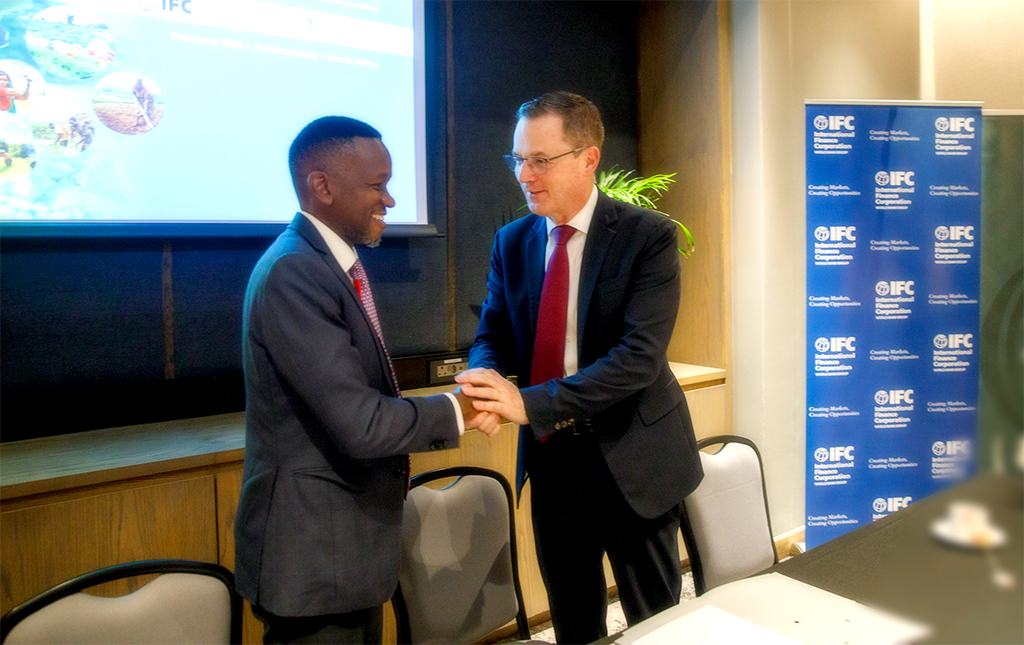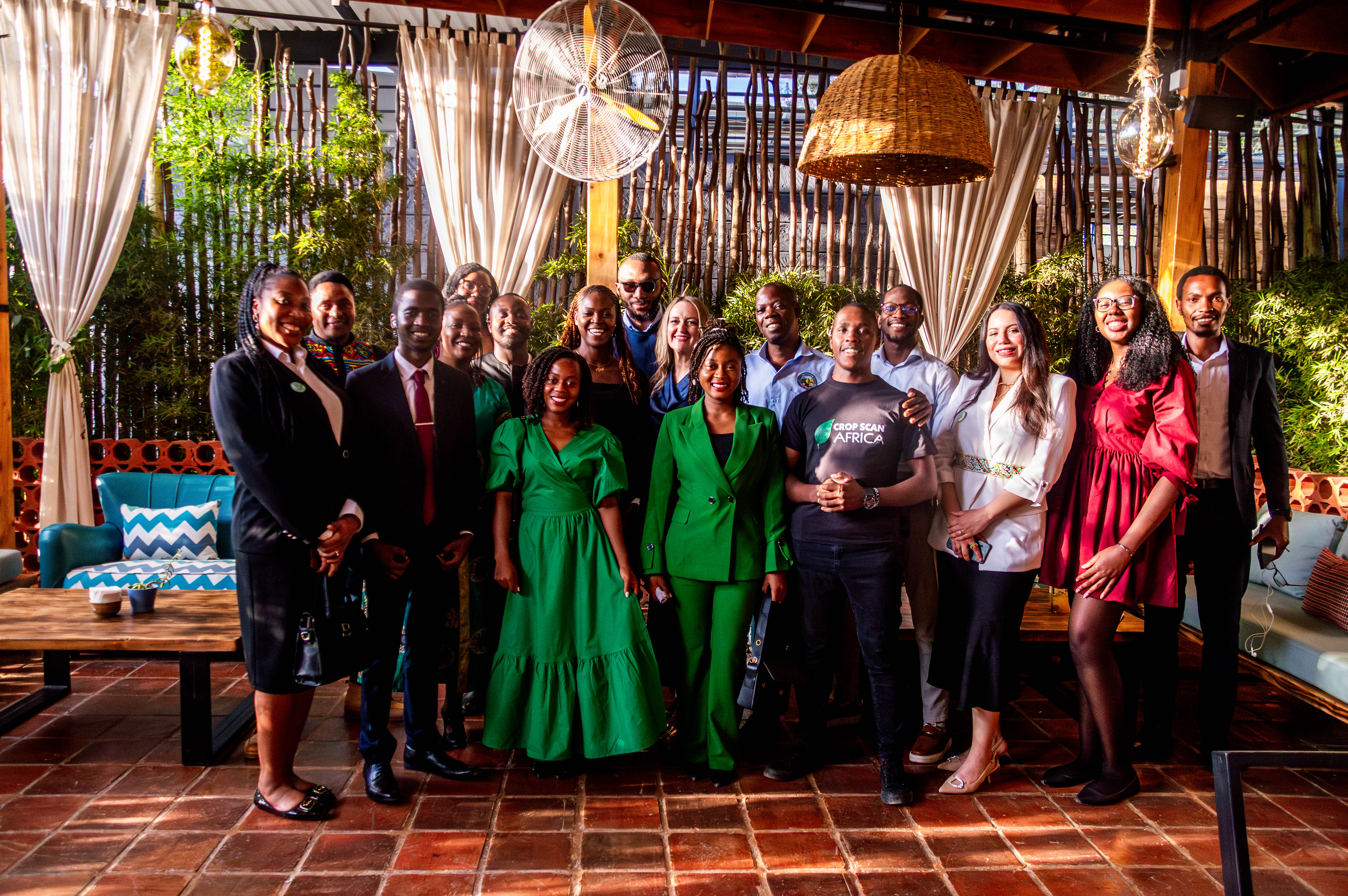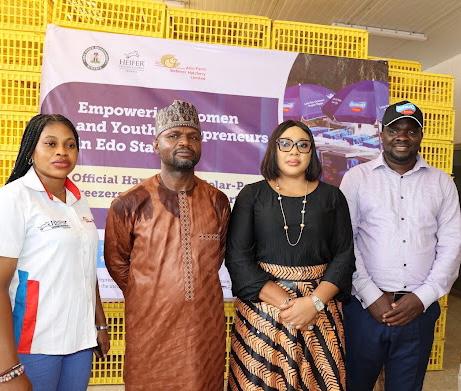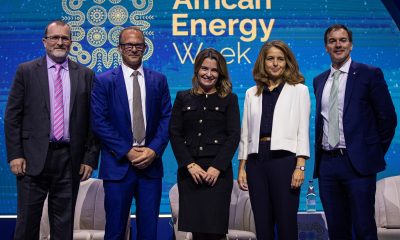Agriculture
COVID-19 Pandemic disrupting our food supply chain – What Next?

Vertical farming. Image credit: Josephine Favre
The COVID-19 Pandemic is challenging us. None of us saw it coming!
Everything around us is changing, from our behaviour in how we deal with the nitty gritty little things to the way on how we look at managing our businesses under Lockdown.
At this point of time, food advocates, including smallholder farmers are facing immense pressure not only on food production, but on distribution/supply due to many countries and their boarders suddenly closing.
There are some countries that are better managed than others thus can go by with their activities on a daily basis, however there are many countries still lacking the appropriate support and expertise necessary to implement sustainable, suitable and appropriate food transition during this Pandemic.
Our entire supply demand chain could so easily be redesigned or redefined due to the COVID-19 Pandemic and the associated economic disruption.
What does that mean? It means owners of food production will need to find ways to monetize their existence. These will result to immediate self-production, leading to door to door delivery of everything we need and consume to our homes.

Building a food production infrastructure which uses less land, less water, less fertilizer and puts higher value, nutritious food at the doorstep of the consumer, is undoubtedly a huge step forward for agriculture and human development.
We are at a point when the technology not only already exists but is improving at an exponential rate; the question is not when but how? How big of a role can vertical farming play in securing the availability of food for future generations while protecting the planet in the process.
Integrating sustainable food production into the urban environment and becoming climate resilient is a necessary step for a modern society. Vertical Farming offers all of this, while also serving as a tool for uplifting quality of life in densely-populated urban areas.
Vertical farming is a smart solution that will use the most advanced technologies in agriculture to provide answers to food production questions. Vertical farms are climate controlled and produce the same quality of food regardless of environmental factors like droughts, floods, pests and disease. By remaining independent of the outdoor environment, vertical farms can provide food for urban and rural areas alike that suffer from food shortage during periods of extreme weather or disease.

It is more clear now that Vertical Farming is no longer just an Urban Farming solutions but a general farming solution given today’s climate changes such as heat waves, extreme floods etc. We need to be in control and Vertical Farming or CEA gives us just that, RESILIENCE.
Also Read: Sub-Saharan Africa steps up efforts to boost local food & beverage manufacturing
The African Association for Vertical Farming (AAVF) is playing a very big role to ensure that the farming community (and potential Agriprenuers) are aware of Vertical Faring as a modern way of farming that ascertain productivity despite climate change challenges, while addressing food security delivery.
We the AAVF at this point of time advice every family owning land, small or big, a balcony or a side garden to learn on how to produce, or provide for themselves and their own by using Vertical Farming Technologies as their agriculture method starting from now.
New technologies for single household to complex business projects can now easily be taught. Join us for our online Vertical Farming Trainings at: https://www.aavf.ch/copy-ofapplication-form-1
There can be no doubt that we have to act now and move toward more sustainable thinking in food practices.
We can do this together!
Article By: Josephine Favre, President The African Association for Vertical Farming
Agriculture
African Risk Capacity and IFC join forces to boost investment in African agriculture

African Risk Capacity Limited and the International Finance Corporation have signed a Letter of Engagement today to strengthen agricultural insurance solutions in Africa. This partnership aims to create a safer and more attractive environment for investment in agriculture by reducing risks linked to climate change and other uncertainties. The signing took place at the Marriott Hotel Melrose Arch in Johannesburg, South Africa, with Lesley Ndlovu, CEO of ARC Ltd., and Sérgio Pimenta, IFC Vice President for Africa, along with their teams.
Agriculture is the backbone of Africa’s economy, providing livelihoods for millions. Yet, farmers and agribusinesses struggle to secure funding due to the high risks posed by unpredictable weather, market fluctuations, and limited financial protections. Africa has approximately 183 million hectares of cultivated land, with 95% of it dependent on rainfall, making the sector highly vulnerable to climate variability. The World Bank estimates that food demand will increase by 70% by 2050, requiring massive investments in agriculture. However, in Africa, less than 5% of farmland is irrigated, and access to financing remains a major barrier to growth. Without effective risk management solutions, many investors hesitate to support agricultural projects, leaving farmers exposed and food production unstable.
Through this new partnership, ARC Ltd. and IFC will develop insurance solutions that help farmers, financial institutions, and agribusinesses manage these risks. The initiative will support the IFC Africa Inclusive Insurance Program (AIIP) by introducing insurance products that protect farmers from climate shocks and other uncertainties. This will not only reduce financial losses but also encourage more investment in agriculture, leading to increased food production and improved food security across the continent.
The collaboration will focus on several key areas, including identifying priority regions for agricultural insurance, developing tailored insurance products, and working with governments, financial institutions, and AgTech providers to expand access to risk protection. By ensuring that farmers and businesses can recover quickly from losses, this initiative will create a more stable and productive agricultural sector.
“This partnership is an important step in our mission to strengthen Africa’s resilience to climate and financial risks,” said Lesley Ndlovu, CEO of ARC Ltd. “By working with IFC, we can scale up agricultural insurance solutions and provide farmers with the confidence to invest in their future.”
Sérgio Pimenta, IFC Vice President for Africa, highlighted the impact of the initiative: “Agriculture is central to Africa’s economy and food security. Supporting food security and nutrition of the continent is an important priority for IFC in Africa which reflects our commitment to fostering economic development and resilience in the region. With this collaboration, we are creating insurance solutions that will protect farmers and attract the investments needed to drive sustainable growth in agriculture.”
At a time when climate change and global food demand are putting increased pressure on African agriculture, this partnership marks a significant step toward ensuring food security and economic stability. By reducing risks and increasing access to financial protection, ARC Ltd. and IFC are working to build a stronger, more resilient future for African farmers and investors alike.
Agriculture
Halcyon Collaborates with Amazon Web Services, Inc. to Combat Food Insecurity in Africa

Halcyon is proud to announce its collaboration with Amazon Web Services, Inc. (AWS) highlighting their shared commitment to combat food insecurity and accelerate transformative change in Africa through innovation in agricultural technology. This collaboration has already identified 10 visionary African startup founders who are developing impactful solutions to the region’s most pressing challenges in food insecurity. The Climate Resilience and Food Security in Africa Fellowship program will kick off with a one-week in-person residency in Nairobi, Kenya. Following this, participants will engage in several months of virtual programming. The program will culminate with a second residency, which will involve another immersive, in-person experience for this cohort.
The Fellowship focuses on tech solutions targeting climate resilience and food security across Africa, including but not limited to climate-smart agriculture and food systems, water technology, blue economy (the sustainable use of ocean resources), renewable energy, green building, and climate data. The founders will receive training on investment readiness, product-market fit, and leadership, as well as access to technical support and credits from AWS. They will also be connected to a network of climate-focused early-stage investors and mentors for further support.
By focusing on AgTech ventures, Halcyon and AWS are enabling a new wave of African startups committed to improving nutrition, increasing agricultural yields, creating innovative agricultural finance solutions, deploying smart climate adaptation strategies, and expanding the trade and delivery of food to vulnerable populations.
“Through AWS’s cloud technology, Halcyon is empowering entrepreneurs to turn their bold ideas into impactful solutions that will drive lasting change across Africa,” said Carolyn Vigil, Social Responsibility Impact Leader at AWS. “I’m especially excited about this collaboration because it focuses on Africa’s unique challenges and opportunities. Together, we’re nurturing the next generation of innovators who are tackling the intersection of agriculture, health, and resilience, paving the way for a more sustainable future for vulnerable communities across the continent.”

L-R Ann Elise Francis, Mercy Erhiawarien – Senior Manager Halcyon – Kim Johson Roberts – Executive Vice President, Halcyon
Halcyon aims to expand its successful programs, identifying even more talented founders throughout the continent who are committed to driving sustainable change. These startups will benefit from Halcyon’s robust support infrastructure, including mentorship, access to AWS’s world-class cloud services, and connections to a global network of investors, industry leaders, and policymakers.
“We deeply value AWS’ support in working with us to strategically strengthen organizational capacity and scale impactful AgTech businesses across Africa,” said Mercy Erhiawarien, Senior Manager of Intensives at Halcyon. “Halcyon has been supporting founders on the continent for nearly a decade. Africa faces pressing issues such as food insecurity, climate change, and health disparities. These challenges require resilient and innovative solutions, which is where local founders play a crucial role. Halcyon has consistently worked alongside these entrepreneurs, providing them with the support they need to scale their businesses and create long-lasting change. This collaboration is vital for empowering local founders who are developing solutions that tackle food insecurity, promote resilience, and advance health equity. Together, we’re building a future of innovation that will transform Africa’s agricultural landscape for generations to come.”
With funding from AWS, Halcyon’s 2025 program will identify and scale the most promising AgTech ventures across Africa. These businesses will play a critical role in building food security, improving health outcomes, and enabling resilience across the continent. Halcyon remains committed to its mission of accelerating transformative change in Africa and is excited to continue working with AWS to bring these solutions to life.
Agriculture
natnudO Foods Partners with Edo State to Launch natnuPreneur Seller Scheme Hub

natnudO Foods, a division of Amo Farm Sieberer Hatchery Limited, has officially launched the natnuPreneur Seller Scheme Hub & Spoke Model in Edo State.
This initiative, introduced in partnership with the Office of the Edo State First Lady and Heifer International, aims to empower agripreneurs and smallholder farmers while improving access to affordable animal protein.
The scheme features a Hub and Spoke distribution model designed to enhance local food supply chains. Each Hub is equipped with solar-powered freezers for product storage and distribution, while attached Spokes comprising small vendors are provided with push carts and parasols for daily sales. This model not only strengthens small businesses but also enhances local animal protein availability in Edo State.
The unveiling ceremony took place at the natnudO Foods Processing Plant along Presco Road in the Obayanto community, Ikpoba Okha Local Government Area, in Benin City, Edo State, on Thursday, 30th January 2025.
During the event, the Coordinator of the Office of the First Lady, Mrs. Edesili Okpebholo Anani, handed over the empowerment equipment including solar-powered freezers and insulated carts to the first batch of beneficiaries, mostly women.
She encouraged them to maximize this opportunity to boost animal protein supply, improve earnings, and enhance their overall standard of living.
Mrs. Anani also commended the collaboration between natnudO Foods, the Edo State Government, and Heifer International, emphasizing the collective vision to empower women and young entrepreneurs.
“Let us build an ecosystem that fosters innovation, entrepreneurship, and economic growth. Together, we can create a brighter future for our people,” she stated.
Speaking at the event, Alaba Yunusa, Deputy Head of Business for natnudO Foods, who represented Dr. Oduntan, expressed enthusiasm about the partnership.
He reiterated that the natnuPreneur programme is committed to increasing local production, creating economic opportunities, and ensuring quality protein is accessible to all Nigerians.
He highlighted that natnudO’s abattoir in Edo State can process 10,000 birds daily while also leveraging innovative technology to support smallholder farmers.
As part of its ongoing expansion, natnudO Foods commissioned a new processing plant in Benin City in November 2024. This facility joins other natnudO plants in Akinyele (Oyo State), Uyo (Akwa Ibom State), and Kaduna State, reinforcing the company’s commitment to boosting food security and making quality animal protein affordable for all Nigerians.
-

 Oil and Gas2 days ago
Oil and Gas2 days agoTotalEnergies, Chevron Push for Faster Permits, Better Seismic Data in Africa
-

 Afripreneur11 hours ago
Afripreneur11 hours agoRevolutionizing Cross-Border Payments in Africa: An Exclusive Interview with Onyinye Olisah
-

 Energy2 days ago
Energy2 days agoUnited States (U.S.) Political Will, African Reforms Signal New Era for Energy Investment

















